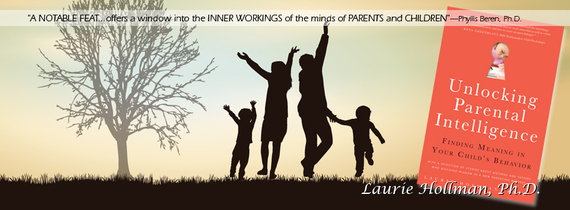
1. Respond immediately to noncompliant behavior.
This is advice that is often given when a child misbehaves. This requires not thinking before you act, but giving consequences before you know why the behavior occurred.
Better advice is to step back and think before you act. Take a nonjudgmental stance until you understand the motivation for the behavior.
2. Give reasonable punishments right from the start of a misbehavior.
Similarly, how can you punish what you don't understand? Usually punishing leads to further resentment, not lessons learned.
Step back and track the behavior, trying to understand if there is a pattern.
Reflect on your own feelings and see if they are a guide to what's going on.
3. Always give consequences for misbehavior.
Misbehaviors are often communications when words aren't available or don't suffice to get across what is upsetting the youngster. How can you give a consequence for what you don't understand?
Consequences don't teach lessons if what is underlying the behavior isn't first understood. Once it's understood, reasonable consequences may be appropriate or unnecessary.
Often when a behavior is understood it vanishes of its own accord.
4. If at first your child doesn't succeed, tell him to try again and again and never give up.
Children have assets and weaknesses. If they take up a challenge that they don't have the aptitude for and it's an option, maybe they should try a bit harder and then be allowed to make a choice to discontinue before they feel like a failure and lower their self-esteem.
Learning how to make wise choices is a good lesson unto itself.
5. Tell kids to eat everything on their plates.
Children can tolerate different amounts of food before they feel full. It's important that they are grateful that they are provided the nutritious food they are given, but it's also important that they learn to know their own bodies.
Eating slowly allows one to know when he or she is full. The quantity on the plate doesn't dictate when you are full -- your body tells you.
6. Give rewards for good grades.
Some families base an allowance on grades. The higher the grade, the more money a child receives, following the idea that school is a child's work.
School is a child's work, but it's work that involves learning, which should provide pleasure.
Certainly kids will enjoy some subjects more than others; some work needs to be done, whether we make it our top priority or not. But money or other material goods shouldn't be the reason to learn.
Learning should have intrinsic value as part of a family's ethic.
This doesn't exclude rewards of specific praise for specific tasks well done -- or, especially, for the efforts put into an activity, regardless of how well it's done in the end.
7. Give money for chores.
Some believe, as I do, that chores are part of being in a family. A family is a small community where everyone shares in helping each other, up to their level of aptitude and time management.
Moms and dads aren't paid for food shopping and food preparation, and so children aren't paid for setting the table or emptying the dishwasher.
Everyone helps out, in a community spirit. If this begins early, with kids as Mommy or Daddy's helper, it tends to stick.
Do you get advice that doesn't feel right to you, even when going against it feels counterintuitive because you've heard it so often? Can you add to this list? Please leave comments, so we can discuss these ideas.
Laurie Hollman, Ph.D., is a psychoanalyst with a recent book, Unlocking Parental Intelligence: Finding Meaning in Your Child's Behavior, found on Amazon, Barnes and Noble, Familius and wherever books are sold.
